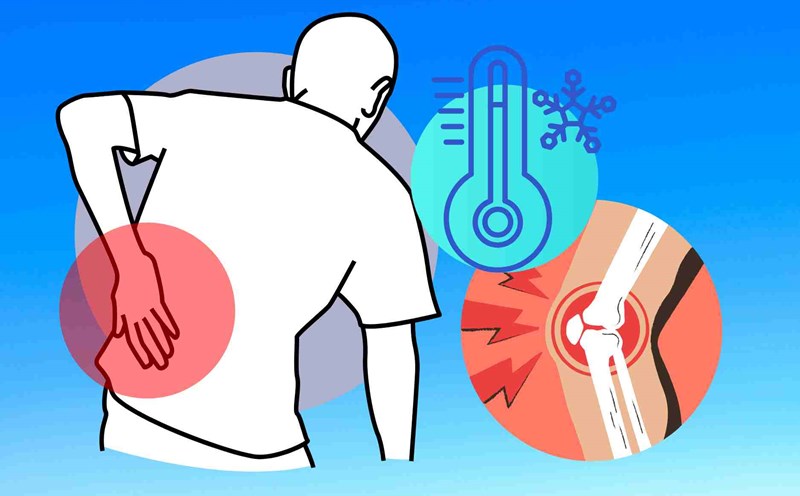Reasons why you are more susceptible to joint pain in winter
Winter not only brings cold winds but also causes many people with arthritis to suffer double, painful joints, stiffness and difficulty moving. According to Dr. Dhananjay Gupta, an Orthopedic and joint replacement surgeon in India, cold weather causes blood vessels to constrict, reducing blood flow to muscles and joints, making patients more susceptible to pain and stiffness.
Red air pressure also causes tissues around joints to dilate, causing more obvious pain, especially in people with osteoarthritis or rheumatoid arthritis, says Gupta. In addition, less exercise in the cold season also causes weak muscles, inflexible joints and more susceptible to inflammation.
To control arthritis flare-ups in the cold season, Dr. Gupta recommends the following seven simple natural solutions:
Keep your body warm: Wearing multiple layers of clothing, using hot compresses or taking a warm bath helps relax muscles, improve blood circulation and reduce stiffness.
Maintain exercise: Don't sit still for too long. Gentle exercises such as walking, yoga or warm water swimming help flexible joints and limit pain. Just needing light daily exercise can significantly reduce stiffness, the doctor shared.
Eat anti-inflammatory: Increase foods rich in omega-3 and antioxidants such as turmeric, flaxseed, walnuts, green leafy vegetables and berries. At the same time, drink enough water to make cartilage more lubricated.
Weight control: Being overweight puts extra pressure on the knees and hips, making the pain worse. Maintaining a reasonable weight helps reduce the burden on joints.
Sunbathing and vitamin D supplementation: A lack of sunshine in winter makes the body susceptible to vitamin D deficiency, an essential factor for healthy bones and joints. Patients should take a morning sun bath or supplement vitamin D according to the doctor's instructions.
Stay positive: Stress can make the pain worse. Deep breathing, meditation, or mindfulness exercises help relax and reduce pain.
see a doctor when needed: If symptoms persist or get worse, patients should talk to a doctor for medication adjustment or advice on other supportive therapies.
It is important not to ignore symptoms, with a reasonable lifestyle, arthritis patients can completely stay healthy throughout the winter, Dr. Gupta emphasized.











